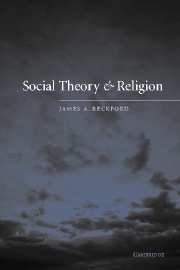4 - Globalisation and religion
Published online by Cambridge University Press: 18 December 2009
Summary
Introduction
Ulrich Beck's What is Globalization? (2000) concludes with a chapter entitled ‘Decline à la carte: the Brazilianization of Europe’. It is a thoroughly dystopic depiction of the future as a slide into factional disputes, polarisation, lawlessness and protection rackets. The nightmare scenarios of post-modernity and of neo-liberal globalism would have come true: States would be weak, whereas select transnational corporations would be gigantic.
This is one possible reading of some of the tendencies already discernible in an increasingly globalised world. But it is far from being the only interpretation: it is merely the most shocking. What is most surprising about Beck's notion of ‘Brazilianization’ is that it makes only one passing reference to religion in the guise of ‘salvation armies’. Yet, one of the most fascinating aspects of Brazil's history in the twentieth century was the proliferation of a mesmerising variety of syncretistic religious movements. Brazil also experienced a steady growth in the popularity of Protestant, especially Pentecostal, churches (Martin 1990; Freston 1994, 1995; Lehmann 1996, 2001; Aubrée 2001; Martin 2002). In the last three decades of the twentieth century Brazil generated a number of hybrid religious organisations that have spread to other countries and are now part of global religious networks.
I am not suggesting that these developments in Brazilian religion have anything to do with Beck's dystopic vision of globalisation. I mention them only for two different reasons.
- Type
- Chapter
- Information
- Social Theory and Religion , pp. 103 - 149Publisher: Cambridge University PressPrint publication year: 2003
- 2
- Cited by



